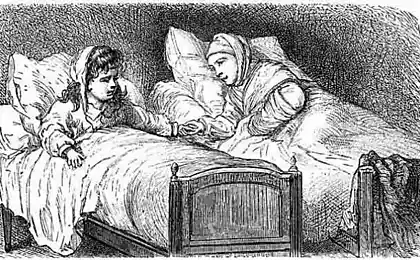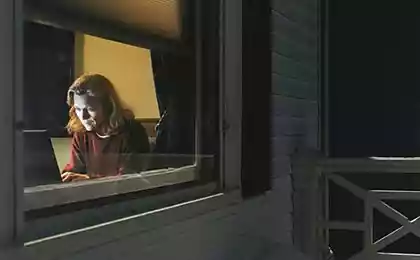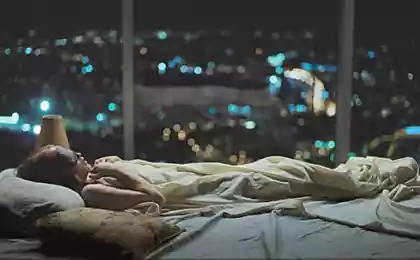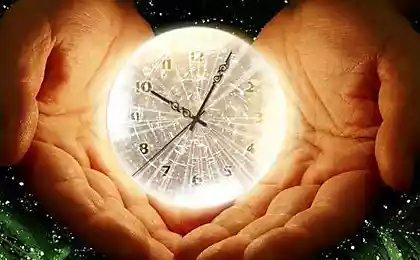461
Your ancestors slept not like You. What are we doing wrong?
Historians and other scholars there is growing evidence that currently most of us are not sleeping correctly
In 2001, historian Roger Ekirch at Virginia Tech, published an article, which conducted research for 15 years. In it he has collected a sufficient amount of historical evidence about what people in the not so distant past were sleeping twice a day instead of one.
In 2005 he published a book on the subject. It collected more than 500 references to the drawings of sleeping people of the past. Here was the data from diaries, medical books, fiction literature — including Homer's Odyssey and the history of the tribes of Nigeria.
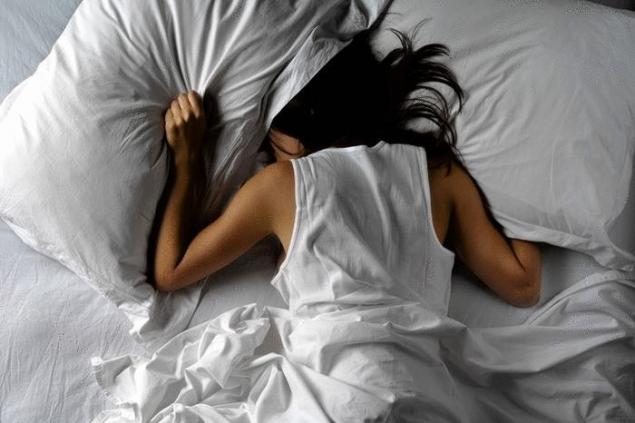
Ekirch found that for people in General is not very characteristic of "traditional" 8-hour night's sleep. Our ancestors used to sleep twice, with a break at midnight. At first people went 7-8 in the evening, then woke up at 11-12 in the night. Awake, usually three hours (at this time of day people have sex, art, writing, etc.), and then went to bed. Already to morning.
In the 1990s, psychiatrist Thomas Wehr conducted an interesting experiment. 14 different people placed in a special closed room without Windows. And turned off the light on 14 hours a day. And then on 10 hours turned on. And so 30 times a month in a row.
On the fourth week, people began to sleep as their ancestors slept twice per night, for 3-4 hours at a time.
Ekirch noticed that the habit of sleeping twice during the night began to disappear in Europe in the late XVII century. The upper class in Northern Europe I decided that much "better" to go to bed later and sleep until morning in one sitting than two.
By 1920, the ninth year when everyone — from factory workers to the first capitalist was just wear and tear, the idea that you need to sleep twice per night, has completely disappeared from public consciousness.
Why did this happen?
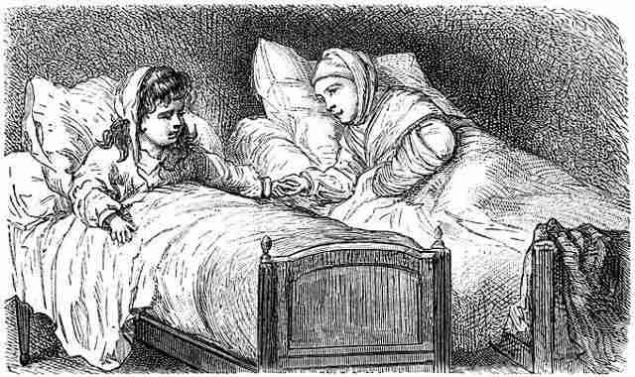
In the XVII century the city became more densely populated. Night in the cities were a time of day when the streets went only criminals, prostitutes and drunks. "Decent" people preferred the night to go to bed and "not see all of it." In this theory, at least, believes historian Craig Koslofsky. One more thing. Paris in 1667, became the first city in the world illuminated streets. This forced the Parisians to fall in love with evening walks. Along came the industrial revolution: people began to think about efficiency, and life to share for days, for hours.
Children of the night began to get to sleep. The regime has developed and has become something taken for granted.
What's wrong with that?
Ekirch believes that most sleep problems in modern humans are caused by just what we have allowed ourselves to go against nature.
We are programmed to go to bed early and Wake up in the middle of the night.
There are studies that prove that people who sleep on that schedule, you can use a 3-4 hour break from late night to solve the maximum of creative tasks. This time could be the period of your day!
By the way, the concept of "insomnia" in psychiatry appeared in the XIX century, when the rejection of the two-phase sleep is entrenched in European society completely. Then the first people suffering from this disease, complained that constantly Wake up in the middle of the night and then can't sleep.
In General, if this kind of insomnia will begin to torment you, do not worry. Use this window to maximum advantage: meditate, dream, read, pray, work or engage in any spiritual practice.
And the next day go to bed early.published
P. S. And remember, only by changing their consumption — together we change the world! ©
Source: lifter.com.ua/post/616
In 2001, historian Roger Ekirch at Virginia Tech, published an article, which conducted research for 15 years. In it he has collected a sufficient amount of historical evidence about what people in the not so distant past were sleeping twice a day instead of one.
In 2005 he published a book on the subject. It collected more than 500 references to the drawings of sleeping people of the past. Here was the data from diaries, medical books, fiction literature — including Homer's Odyssey and the history of the tribes of Nigeria.

Ekirch found that for people in General is not very characteristic of "traditional" 8-hour night's sleep. Our ancestors used to sleep twice, with a break at midnight. At first people went 7-8 in the evening, then woke up at 11-12 in the night. Awake, usually three hours (at this time of day people have sex, art, writing, etc.), and then went to bed. Already to morning.
In the 1990s, psychiatrist Thomas Wehr conducted an interesting experiment. 14 different people placed in a special closed room without Windows. And turned off the light on 14 hours a day. And then on 10 hours turned on. And so 30 times a month in a row.
On the fourth week, people began to sleep as their ancestors slept twice per night, for 3-4 hours at a time.
Ekirch noticed that the habit of sleeping twice during the night began to disappear in Europe in the late XVII century. The upper class in Northern Europe I decided that much "better" to go to bed later and sleep until morning in one sitting than two.
By 1920, the ninth year when everyone — from factory workers to the first capitalist was just wear and tear, the idea that you need to sleep twice per night, has completely disappeared from public consciousness.
Why did this happen?

In the XVII century the city became more densely populated. Night in the cities were a time of day when the streets went only criminals, prostitutes and drunks. "Decent" people preferred the night to go to bed and "not see all of it." In this theory, at least, believes historian Craig Koslofsky. One more thing. Paris in 1667, became the first city in the world illuminated streets. This forced the Parisians to fall in love with evening walks. Along came the industrial revolution: people began to think about efficiency, and life to share for days, for hours.
Children of the night began to get to sleep. The regime has developed and has become something taken for granted.
What's wrong with that?
Ekirch believes that most sleep problems in modern humans are caused by just what we have allowed ourselves to go against nature.
We are programmed to go to bed early and Wake up in the middle of the night.
There are studies that prove that people who sleep on that schedule, you can use a 3-4 hour break from late night to solve the maximum of creative tasks. This time could be the period of your day!
By the way, the concept of "insomnia" in psychiatry appeared in the XIX century, when the rejection of the two-phase sleep is entrenched in European society completely. Then the first people suffering from this disease, complained that constantly Wake up in the middle of the night and then can't sleep.
In General, if this kind of insomnia will begin to torment you, do not worry. Use this window to maximum advantage: meditate, dream, read, pray, work or engage in any spiritual practice.
And the next day go to bed early.published
P. S. And remember, only by changing their consumption — together we change the world! ©
Source: lifter.com.ua/post/616
How to cook low calorie pancake without flour
Helsinki will be one of the most eco-friendly cities by 2050









